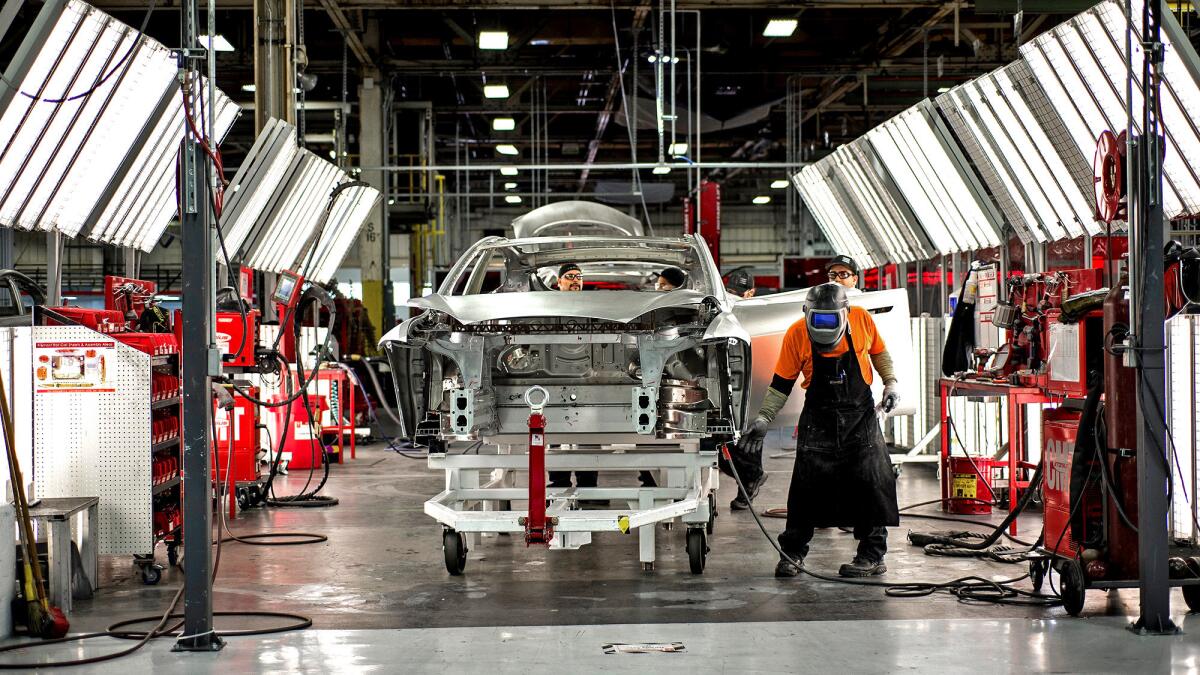Tesla broke the law with worker threats and Musk’s tweet, judge rules

- Share via
Tesla Inc. committed a series of violations of the National Labor Relations Act in 2017 and last year, a judge ruled Friday.
The electric-car maker illegally threatened and retaliated against employees, according to Amita Baman Tracy, an administrative law judge in California. A tweet that Elon Musk sent in May 2018, which suggested employees who chose to join a union would give up company-paid stock options, was among the incidents the judge ruled were in violation of the law.
Musk wrote: “Nothing stopping Tesla team at our car plant from voting union. Could do so tmrw if they wanted. But why pay union dues & give up stock options for nothing? Our safety record is 2X better than when plant was UAW & everybody already gets healthcare.”
The judge’s order calls for Tesla to offer reinstatement and back pay to a fired, pro-union employee, and to revoke a warning issued to another union supporter. The ruling also calls for the company to hold a meeting at its assembly plant in Fremont, Calif., that Musk must attend. Either he or an agent with the labor board must read a notice to employees informing them that the NLRB concluded that the company broke the law.
Representatives for Tesla, which had denied wrongdoing, didn’t immediately comment. The ruling was issued in response to complaints filed by the United Auto Workers union.
The judge’s ruling can be appealed to NLRB members who are presidential appointees based in Washington, a prospect that all sides have suggested is basically inevitable. “This will be appealed no matter what I decide,” Tracy said at one point during the trial last year in Oakland.
The NLRB is limited in its ability to punish companies found to have violated labor law. While the agency can require that companies reinstate and pay back wages to workers who were illegally fired, it can’t assess punitive damages or hold executives personally liable for violations.
Still, the judge’s ruling against Tesla offers grist to UAW supporters in making their case to workers and elected officials in California who have sought to tie electric-vehicle subsidies to companies’ workplace practices.
“This entire trial is an infomercial in an effort to place Mr. Musk and the company in a negative light,” Mark Ross, a Tesla attorney, said at the start of the proceedings in June 2018.
More to Read
Inside the business of entertainment
The Wide Shot brings you news, analysis and insights on everything from streaming wars to production — and what it all means for the future.
You may occasionally receive promotional content from the Los Angeles Times.










